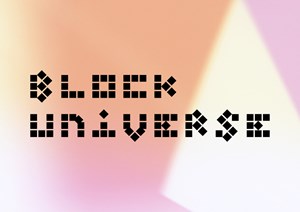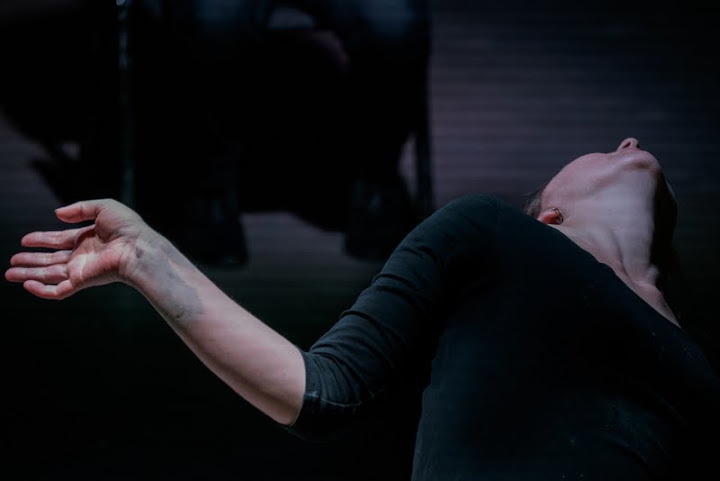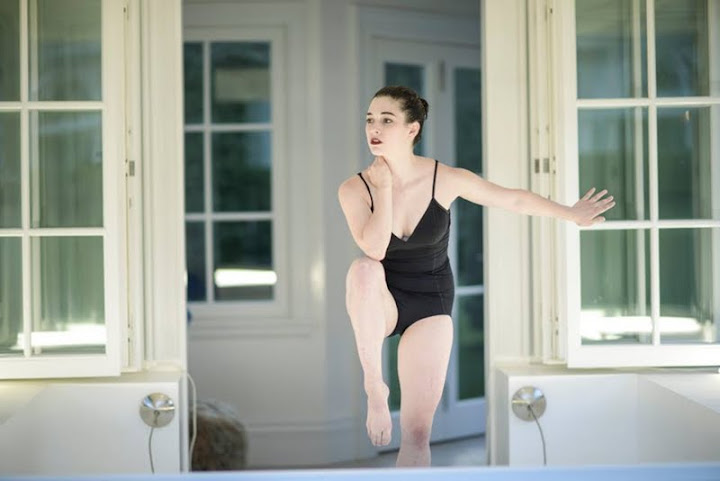
“With Block Universe the performance is ever present. All moments are valid and equal” – Interview with Louise O’Kelly, director of Block Universe. A new festival arrives in London next week focusing, for the first time, exclusively on performance art. In this inaugural edition, Block Universe will bring together cutting edge performance artists at the cross-section of visual art, dance and music. The festival will present its diverse programme in several venues around the city from 8 to 14 June, launching at the opening of Fig-2 at the ICA Studio. Artdependence Magazine talks with Louise O’Kelly, director of the festival, about performance art, time, memory and the body as archive.
“With Block Universe the performance is ever present. All moments are valid and equal” – Interview with Louise O’Kelly, director of Block Universe.
A new festival arrives in London next week focusing, for the first time, exclusively on performance art. In this inaugural edition, Block Universe will bring together cutting edge performance artists at the cross-section of visual art, dance and music. The festival will present its diverse programme in several venues around the city from 8 to 14 June, launching at the opening of Fig-2 at the ICA Studio. Artdependence Magazine talks with Louise O’Kelly, director of the festival, about performance art, time, memory and the body as archive.
Artdependence Magazine: Let’s start talking about yourself. Where do you come from where do you go, and essentially how did you get interested in performance art?
Louise O’Kelly: My interest in performance came from working in galleries. I used to work with the estates of really amazing performance artists, like Ana Mendieta, Hannah Wilke or Lygia Clarke, which obviously goes on another direction, but I think that was what sparked my interest. From there I went on with a masters where I focused on performance art, and the two strands I was doing were meeting the performative and transcultural memory.
It was also from the things I was researching and writing about and the different projects I was putting on that I wanted to explore some of those ideas further, whether that was commissioning performance or doing seminars to talk about it. That was the genesis that leads me to do Block Universe.

Arrangement, 1, Joe Moran, ©David Edwards
AD: The name of the festival, Block Universe, comes from a time theory. Tell us a bit more about it and how does it relate with performance.
LO'K: Block Universe is a physics theory that describes an alternative time where past, present and future exists simultaneously. I thought it was a great phrase in terms of relating it to theories surrounding performance art. There are those famous canons in performance art from Peggy Phelan who talks about the singular moment in performance and how any reproduction or further iterations cannot replicate the original performance.
Block universe, in a way, negates all those debates about where is the present moment and this touches on the theme of the festival this first year, which is Legacies of performance. It’s about how we keep performance alive and how we sustain an engagement with it after the moment of performing. A lot of my thinking surrounding it is informed by a Latin American scholar called Diana Taylor and she wrote a wonderful book called The archive and the repertoire that talks about how information is passed on directly through bodies over generations. She is looking particularly at the point of colonisation in Latin America when the Spanish came and how the archive is used to enforce power, in a sense, by writing laws and decrees, which attempts to control behaviours of the local population.
Essentially, it’s about keeping cultural memory alive through performance, whether that’s through dance, oral history, story telling, song, weaving or cooking a local dish. All these types of information can be passed on directly between people without the need of supplementary documentation.
It also relates to the idea that the body is archive and to how the information is stored in the body.
Looking at the theme of the first year of the festival, that was really my focus. It looks more to types of performance that are designed to repeat and exist within the body, so in a lot of performances there are choreographic work because it’s about modes of rehearsal and how you embed memory within the body, whether it is with muscle memory or choreography, or it is song or story telling and narrative. Cultural memory, historical memory, personal memory, all those types of information, are passed on through performance. The idea is that the body acts as the archive and that’s where the information is stored and you access information through performance, in a way.
With Block Universe the performance is ever present and it negates those conversations about where the past, the present, or the future is, and whether it is a re-performance or a reinterpretation. All moments are valid and equal.

Florence Peake © Christian Kipp 2015
AD: Regarding also to the theme, we often tend to relate performance art to the 60's. Is Block universe going to approach this period of time and all the iconic performances that were created at the time?
LO'K: In lots of ways it’s looking at what’s happening in performance now. I did consider looking at these historical approaches when talking about redressing history or negating whether something is performance or re-performance. But I felt it was more important to nurture the scene here and what is happening now. There are so many artists working in performance or performatively in their practices in London and I thought that we needed an additional platform for those artists.
AD: Tell us more about how do you see the panorama of London regarding performance art.
LO'K: We see the increasing programming of performance and in many ways it’s really healthy because a lot of artists are working with it and there are lots of spaces programming it. With the opening of Tate’s Tanks there was a wonderful explosion of performance and I ‘d say that what London really lacks is a space like that, dedicated to performance.
There are many great exhibitions at institutions and galleries, which programme performance, but often it is still in addition to the exhibition, still supplementary. There’s obviously exceptions to that, but overall this is how often performances are related to.
So, for one week it’s all about performance.
AD: Block Universe is organised in London but has a very international approach. It will partner with The Kitchen, New York’s historic venue for experimental performance, and a series of performances will be hosted at the Medellín Museum of Modern Art, Colombia in the fall.
LO'K: It felt important that was not only a local festival and that we had this international dialogue. The partnership with The Kitchen is a great addition to our programme as it is a venue that historically has done so much in performance over the years. What I realised talking to them was that, even though the art world is so international, there are still many artists working in London that wouldn’t be familiar in New York, and there are many artists in New York who are well known there but not necessarily here. It makes sense to create a dialogue between the two, so we discussed making an exchange of our programme. In this first year the artist Ellie Ga, who has performed at The Kitchen before, will be performing for the first time in London. Equally, we’ll do an exchange where one of our UK based artists will travel to show in The Kitchen.
With Medellín, they are really keen to bring some of that energy of performance in Europe, in London, to their programme. They have a relatively new chief curator, Emiliano Váldes, who was based in London last year and knows the scene here. Apart from bringing performances from London we are planning to programme new ones with Latin American artists that are tied to the local scene there.
We are open to having further international partnerships. It means creating opportunities for artists to show in London, but also for UK based artists to have more international exposure.

Feeling Real, 2015. Sophiensaele Theatre, Berlin (Imma Mess, Mikey Woodbridge pictured) ©Dieter Hartwig
AD: There will be a combination of commissioned works and also some artists will do solo presentations for the first time in the UK, like Brittany Bailey, Ellie Ga and Ieva Misevičiūtė
LO'K: They are all artists that I’m really excited about working with and it’s great that they are not all necessarily familiar to UK audiences. In terms of the commissions, when working with London based artists we wanted to show something new as well, so the audience that already know them will see something that they haven’t seen before.
Some of the new commissions might respond specifically to the place where they are being shown, or might be dealing with the ideas of the theme and having this crossover.
For example, Cecilia Bengolea and François Chaignaud will be performing in Stationer’s Hall, an incredible old building. Their piece is a cross between free dance, dancehall, classical ballet and they’ll be wearing George Condo masks. What is really interesting about those performances is that all these types of dance that they work with bring all these different cultures together, located in the dancers bodies in a sense. And they also have this cross-disciplinary nature: the dancers working with George Condo, who is a painter, or Joe Moran, a choreographer working with the sculptor Eva Rothschild, where the visual arts meet, and movement and practice speak to each other.

Chaignaud Bengolea Twerk, credit Jean-Marie Legros
AD: Also Brittany Bailey will do a performance based on Louise Bourgeois.
LO'K: Yes, it is very beautiful. It relates to Louise Bourgeois and Gary Indiana’s book collaboration ‘To Whom It May Concern’, consisting of her watercolour paintings of male and female figures in profile coupled with Indiana’s text, which is very visceral, physical and sensual. Brittany Bailey has worked with Michael Clark and Marina Abramovic, so she has this unique approach in terms of coming from a choreographic background, but also a fine arts context. When we were talking about that piece she said to me that when she looks at someone like Merce Cunningham and his collaborations with amazing artists like Jasper Johns, that was a piece of history that she wanted to insert herself into. It’s her homage to that, positioning herself in a way to work with Louise Bourgeois, which will never be possible.
AD: Ellie Ga explores the limits of photographic documentation through performance. How does she do this?
LO'K: Ellie’s piece has a beautiful layering of documentation, performance and memory. Essentially, the performance is composed of her narrating a story of the time she spent on a scientific expedition in the Arctic. They were on a boat that was designed to be trapped in the ice until it moved and they were free again. So, they didn’t know how long they would be there. The performance talks about the experience of being trapped in that place, in a space without time where it can be night for 24 hours a day, but it’s also composed of all her documentations of that moment in time. There are sound clips, videos and photographs that she took at the time. It’s also about the idea that there can’t ever be a faithful rendition of exactly what happened in that place in time. It really touches upon the “we are here now, we are there”, through different entry points, through her presence speaking, memories and also the hard facts that exist.

Lina Lapelyte, Hunky Bluff, courtesy of Baltic CCA
AD: It’s very interesting as well how Florence Peake plays with the space and integrates visual arts.
LO'K: Her practice is very interesting because she does a crossover between sculpture, installation and performance and relates to those objects in a very performative and physical way. In her piece there will be small sculptural elements, but it’s about exploring the idea of the body as a resource or source of information and how we access that information. This is why she is exploring the idea of channelling and the physical parameters of that.
AD: A public seminar will be held by curatorial research group Consonants, a branch of Vision Forum. What topics will be discussed?
LO'K: The title of the seminar is What makes today’s performances so different, so appealing, referencing Richard Hamilton and it’s a collage of these ideas. We are 8 or 9 producers and curators based in various corners of the world bringing in everyone’s perspectives.
We all do have a shared interest in performance in different ways and it will be a way where all our different voices and ideas can be present in the space in one time, without all of us actually being present physically. There will be five of us present: myself, Fatos [Üstek], Ben [Roberts], Rose [Lejeune] and Margit Neuhold. And we will have the voices of the rest of the missing participants involved.
It will be a very diverse look at performance from different perspectives, from exhibition making, theatre production or festival or biennial organisation and private gallery spaces. All those different approaches from different countries, looking at our perspectives and how we relate to what is happening in performance.
AD: Thank you, Louise!

Brittany Bailey performing ©Lovis Ostenrik

ArtDependence Magazine is an international magazine covering all spheres of contemporary art, as well as modern and classical art.
ArtDependence features the latest art news, highlighting interviews with today’s most influential artists, galleries, curators, collectors, fair directors and individuals at the axis of the arts.
The magazine also covers series of articles and reviews on critical art events, new publications and other foremost happenings in the art world.
If you would like to submit events or editorial content to ArtDependence Magazine, please feel free to reach the magazine via the contact page.